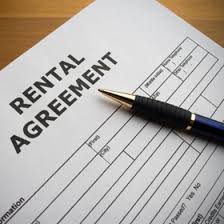What Every New Jersey Tenant Needs to Know About Paying Rent
 Most of what a tenant needs to know about the who, what, why and where of paying rent should be clearly delineated in the rental agreement between tenant and landlord. New Jersey residents should make sure their rental agreement states clearly:
Most of what a tenant needs to know about the who, what, why and where of paying rent should be clearly delineated in the rental agreement between tenant and landlord. New Jersey residents should make sure their rental agreement states clearly:
– The monthly rental amount.
– Where to submit the rent. It can be sent my mail to the landlord’s business address, or another arrangement can be made.
– The date the rent is due
– In what form the payment is made: by check, cash, credit card and/or money order.
– How much notice the landlord is required to give before raising the rent.
– If the rent check bounces what, if any, extra fees are accrued.
– What happens if the rent is paid late? Are there late fees and/or the termination of rental agreement and eviction from the premises?
The law states that tenants must submit their rent on the day specified in the rental agreement, which is most frequently the first day of each month. An exception is made for senior citizens and others receiving specific benefits such as Social Security or Disability payments. In these cases a five day grace period is allowed before the landlord can impose a late fee.
According to Gemma M. Giantomasi, a New Jersey real estate lawyer who works alongside partners Elnardo Webster Jr. and Brian W. Kronick at the New Jersey law firm Genova Burns Giantomasi Webster, the amount the landlord can impose as a late fee is limited by New Jersey law. In a letter written to the New York Times Giantomasi addresses this issue in the following way:
“Charging $150 for late rent might be illegal, and it is certainly obnoxious. Many New Jersey towns cap late fees around $30, so the landlord should check and see if his fee scheme is even permitted.
“Late fees are intended to help a landlord recoup losses sustained from late rent. They are not supposed to be used as a cudgel or as a clever way to increase income without going through the hassle of negotiating a new lease.”
It is important to note that if no date is specified in the rental agreement on which the rent is due, then the landlord is not permitted, according to the law, to charge any late fee whatsoever. In order to charge a late fee there must be a “late fee clause” written into the agreement.
